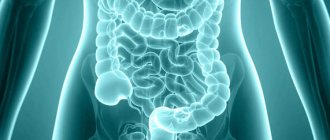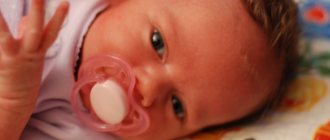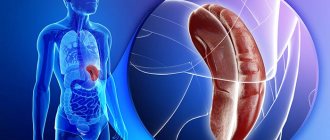Do all women experience early pregnancy symptoms?
Every woman is unique in nature. Therefore, it is impossible to determine the same symptoms for everyone; everything happens quite individually. And sometimes it happens that for the same woman, one pregnancy is significantly different from another.
In addition, early symptoms are very often similar to the period before and after menstruation. Some signs of pregnancy can be mistaken for your period. Thus, the girl may not even realize that she is pregnant.
It is worth noting that you cannot refer only to the signs, because they can indicate completely different reasons. Sometimes even a test can give an erroneous result, so you can hear the most accurate answer at an appointment with an uzist.
first signs of pregnancy
Menstrual cramps
After fertilization, the egg attaches to the endometrium of the uterus. This can cause slight bleeding and cramping pain in the lower abdomen, which is one of the earliest signs of pregnancy. This bleeding is called implantation bleeding, since at this time the egg is implanted into the uterine mucosa. The attachment period takes place in the first 6-12 days after conception. The symptom is often confused with menstruation. However, the spasms are less pronounced.
In addition to blood, a woman may notice heavy vaginal discharge. They look like white milk clots. The fact is that at the same time, the unborn child begins its development at the cellular level. Thickening of the vaginal walls begins. Increased cell growth occurs, which provokes these discharges.
This sign can accompany a girl throughout her pregnancy. The discharge is usually harmless and does not require any treatment. But if you feel an unpleasant odor, burning and itching, you need to contact a gynecologist so that he can determine whether you have a fungal or bacterial infection. Remember that the disease can harm not only you, but also the child. Untimely treatment poses a threat to the life and health of the unborn baby.
Nausea
One of the signs of pregnancy may also be a sudden loss of appetite, especially if you feel nauseous. It may happen that you suddenly no longer like food that you previously adored.
Morning sickness can occur as early as the second week of conception, although it usually occurs from the fourth or sixth week of pregnancy.
Nausea can occur at any time of the day, with or without vomiting. Nausea usually goes away by the end of the first trimester.
Breast changes
Signs such as breast changes usually appear first. Serious changes and hormonal changes begin immediately after conception. The body is preparing for lactation. The structure of breast tissue changes. After a few weeks you may feel tingling and pain.
Although a significant change in growth is not yet noticeable, the breasts begin to swell, become heavier, fuller, and the areola area may darken. In addition, the nipples become very sensitive. Even a slight touch can cause discomfort.
There are other reasons that affect changes in the mammary glands: from normal weight gain to menstruation. But, in the case of pregnancy, you just need to endure this difficult period. Over time, you will be able to get used to these sensations and changes in the body. Later, the pain, sensitivity and discomfort in the chest should subside.
Increased appetite
At an early stage, a change in appetite is likely, and a craving for certain foods appears. Sometimes you may experience a metallic taste in the mouth and increased sensitivity to the odors of certain foods.
The pregnancy hormone progesterone is responsible for the “frenzy” of appetite. However, the same hormone is responsible for increased appetite immediately before menstruation. So, increased appetite does not necessarily mean that a woman is pregnant.
However, the famous scientific journal Obstetrics & Gynecology especially emphasizes increased appetite and weight gain among the first symptoms of pregnancy. Although some women attribute these symptoms to a number of other environmental factors (eg, stress, depression). Over time, they realize that this is something more serious, especially when it comes to the absence of menstruation.
Fatigue
Due to changes in progesterone levels, a pregnant woman may feel very tired. This is quite normal during this period. Already in the first weeks after fertilization, the body spends a lot of energy and resources on restructuring and changes.
Other factors also influence constant fatigue: increased blood circulation, increased blood production, low sugar in the body, decreased blood pressure, as well as lack of sleep due to other side effects of pregnancy (nausea, back pain, frequent urination, etc.) .
The interesting thing is that an exhausted state can change to a significant surge of energy. These two opposing sensations can regularly replace one another depending on hormonal changes.
If fatigue brings you a lot of trouble and prevents you from living a full life, pay attention to your diet. Eating as many foods rich in protein and iron as possible will help relieve fatigue.
This symptom is the most popular among all pregnancy symptoms. Although it does not appear in every woman. Nausea most often occurs between the fourth and sixth weeks and the beginning of the second trimester. In some cases, the symptom manifests itself at all stages of pregnancy.
There are many causes of morning sickness and it is impossible to determine exactly what affects the body’s malaise. However, as with other symptoms, the main cause may be changes in the endocrine system and the process of removing toxins. In addition, some people experience nausea not only in the first half of the day, but also at any other time of the day.
In addition, during pregnancy, girls experience nausea due to complete aversion to certain dishes. The very thought of eating an unloved food can lead to nausea or vomiting.
Despite this condition, it is important for the body to receive nutrients and vitamins. You should consult your doctor and choose a diet that takes into account individual preferences and intolerance to certain foods. Healthy nutrition is one of the keys to the proper development of your child.
How to treat constipation with diet
If constipation occurs before or after menstruation (as well as during it), you should definitely adhere to a special diet. It is best to start introducing laxative products into the menu in advance, about a week before the onset of menstruation. The following foods will be most preferred:
- fermented milk;
- vegetable oil;
- bran;
- dark grains;
- vegetables and fruits (if gas formation is not observed), berries.
You will need to exclude light-colored cereals, potatoes and pasta, bakery and confectionery products, cabbage, and legumes from your diet.
Up to contents
Delay of menstruation
The most obvious early sign of pregnancy and the reason for most women to buy a test is a missed period. But not all delays indicate pregnancy. The reason for this may be hormonal imbalance or diseases associated with the reproductive system, rapid weight gain or loss.
In addition, some women experience bleeding during pregnancy. You should ask your doctor about this so you know when blood is normal and when it is a sign of an emergency.
Early pregnancy symptoms
Conception brings many changes to a woman’s body; developing pregnancy stimulates the restructuring of many systems and this affects the appearance of the first signs of pregnancy:
- 1-4 weeks - slight pain in the lower abdomen and spotting;
- 4 week - no menstruation;
- 4-5 weeks - fatigue;
- 4-6 weeks - nausea and vomiting;
- 4-6 weeks - breast swelling;
- 4-6 weeks - frequent urination;
- 4-6 weeks - constipation and bloating;
- 5-6 weeks - dizziness when moving;
- Week 6 - mood swings;
- Week 6 - temperature changes;
- Week 8 - high blood pressure.
Frequent urination
This symptom appears in the middle of the first trimester. A woman may feel a constant need to urinate even if her bladder is not full. This leads to constant running to the toilet, involuntary release of small amounts of liquid during laughter, coughing, sneezing, etc.
Although frequent urination is normal and at the first stage is again associated with hormonal changes, the symptom can be alleviated. Try to drink less coffee, tea and other diuretic drinks to avoid the constant urge to empty your bladder.
But you shouldn’t reduce the amount of water you drink, thinking that this will help get out of the situation. In any case, liquid is necessary for the health and normal development of the child, and this approach can lead to dehydration.
You should also pay attention to how you feel when urinating. Perhaps the reason is completely different. You should immediately consult a doctor if urination is accompanied by the following symptoms:
- burning;
- pain and discomfort;
- blood in urine.
Such signs may indicate diseases of the excretory system. And untimely seeking help from a specialist sometimes ends in miscarriage.
Constipation
Pregnancy is often accompanied by problems with bowel movements. This is primarily affected by the level of progesterone in the body; the intestines push food through more slowly due to relaxed muscles of its walls, which leads to frequent constipation. Also, this symptom may appear in connection with the use of vitamin complexes and iron.
To make bowel movements easier, include fiber-rich foods, plenty of water, and exercise. Charging directly affects the mechanical processing of food.
Mood swings
In the first trimester, due to changes in the body, the body experiences severe stress. The nervous system becomes more vulnerable, and any unpleasant event is perceived much more seriously than before pregnancy.
This symptom occurs in almost every pregnant woman. But still try to avoid stressful situations, spend time walking in nature, relaxing, and listening to calm classical music. In the early stages of pregnancy, the baby's nervous system is formed. It is important that nothing affects its harmonious development.
Headaches and back pain
Pregnant girls often face problems such as headaches and back pain. The reasons are the same as for other symptoms. But also back pain, most often in the lower back, is affected by a large load on the kidneys. In the first trimester, the body removes toxins more thoroughly, the kidneys work much more actively - this can lead to unpleasant sensations.
Dizziness and fainting
As mentioned above, pregnancy is often accompanied by a decrease in blood pressure. Girls, for whom pressure drops are more significant, feel frequent dizziness and faint.
Although they say that carrying a baby under your heart is one of the most wonderful periods of life, it is accompanied by rather unpleasant symptoms. Some people have all these signs of pregnancy, some have only one or two. But, if you feel that they are interfering too much with your normal functioning, discuss ways to solve the problems with your doctor.
Mood swings
The results of the scientific study, published in the American Journal of Obstetrics and Gynecology, also include some psychological factors that are also important symptoms of early pregnancy. Hormonal changes in the body do not bypass those nerve centers associated with mood. Therefore, many women may experience low mood and lack of energy.
While these early pregnancy symptoms before missing your period mean absolutely nothing to many women other than daily stress, they are also a sign that something is going on with the body. Neglect of psychological factors when detecting pregnancy is not uncommon, since people are not sufficiently aware of the strong influence of hormones on a woman’s behavior and condition.
Popular questions
1. What are the symptoms of an ectopic pregnancy?
The initial signs of physiological and ectopic pregnancy are largely similar. When pregnancy occurs, menstruation is delayed, and indirect signs of conception also appear (breast enlargement, white discharge instead of menstruation). Home pregnancy tests and a blood test for hCG (human choriogonadotropin) will also be positive. With an ectopic pregnancy, pain may begin in the lower abdomen on one side, followed by bleeding from the genital tract. An ectopic pregnancy can be reliably diagnosed using a pelvic ultrasound (gynecological ultrasound).
2. When is a pregnancy test done?
Thanks to modern sensitive pregnancy tests, pregnancy can be detected on average two weeks after conception. There are home tests that show pregnancy 1-2 days before your expected period. It is necessary to take a pregnancy test if there is a delay or if indirect signs appear that may indicate pregnancy (for example, if your chest hurts and your lower abdomen is tight, but you don’t have your period).
3. What are the types of discharge during pregnancy?
Physiological discharge during pregnancy is usually mucous and white. Discharge may appear in the early stages, in the first days after a missed period, and accompany the woman throughout pregnancy. Normal discharge during pregnancy has a neutral odor and does not cause discomfort. If an unpleasant odor, itching or burning occurs, you should consult a gynecologist.
6
6
17
Article rating:
4.4 out of 5 based on 25 ratings
Author: Yushchenko Tatyana Aleksandrovna
Obstetrician-gynecologist, gynecological oncologist. Highest category. Work experience 20 years.
How can you help yourself?
What can be done in the event of stool retention if pregnancy is suspected before visiting a doctor?
- first of all, rid your life of unnecessary stress - try to fall asleep and wake up at the same time, listen to pleasant music, do your favorite things. Show maximum calm and restraint in all controversial issues at work and in the family, because perhaps a new little person already lives inside you, and in comparison with this joy, all troubles are nonsense!
- Spend as much time as possible outdoors. A dosed load has never harmed anyone during a normal pregnancy. If you are involved in any kind of sport, you should not completely abandon activities, just reduce the intensity a little until your situation is clarified;
- Drink enough still mineral water per day, avoiding excessive consumption of coffee and tea. This way you will be saved from constipation and will not harm the baby;
- review your diet schedule - eat at least 7 times a day, in “modest” portions, giving preference to healthy foods that do not have a strengthening effect and do not cause bloating (very often flatulence is a companion to constipation in the first days of pregnancy). We will look at the recommended products below;
- use traditional medicine recipes, avoiding those that suggest using herbal remedies (they can cause miscarriage).
Do not delay your visit to the gynecologist - early registration and control over the course of pregnancy can prevent many unpleasant moments in this difficult period!









